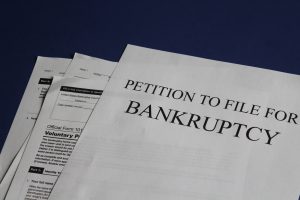COVID-19 has had an effect on virtually every aspect of our lives. For many, COVID has caused a serious lapse in their income and they may be struggling to make ends meet. Both individuals and small businesses in Ohio have been under pressure during this difficult time and lockdown orders are not helping.
Many are facing serious debt or legal obligations. It is important that these people know that they have financing options. One potential option is to file for bankruptcy. Filing for bankruptcy is a way to get the collection calls to stop and start over with a clean slate. All people have the right to file for bankruptcy under federal law and filing for bankruptcy can give you an option to sort out your financial system in a court of law.

Types of Bankruptcy
Declaring bankruptcy can be a complex and daunting task. That is why it is important that you get in contact with an attorney as soon as possible to discuss your options and figure out what steps you need to take going forward.
In Ohio, there are two major types of bankruptcy available for the individual: Chapter 7 and Chapter 13. Chapter 7 is the most common kind and allows you to wipe out your existing debt by giving up some collateral, most of the time property. That being said, in Ohio, some types of property are immune from seizure due to bankruptcy. Many people are surprised that some kinds of property are exempt from seizing, such as your homestead, cash, private pensions, public benefits, and necessary tools for your job, among others.
Chapter 13 Bankruptcy is kind of like a debt settlement plan. Under Chapter 13 bankruptcy, you can opt to settle your existing debts based on your current income. The good thing about Chapter 13 bankruptcy is that you can keep certain valuables like your home or car. You settle for a new debt amount and will have to make monthly payments.
Will Bankruptcy Clear My Debts?
Yes if you file for Chapter 7 bankruptcy then it will wipe out most of your existing debt. There are some exceptions though. Chapter 7 bankruptcy will not clear debt related to child support or alimony, federal student loan debts, debt resulting from “willful or malicious” harm, mortgages or liens, and loans you got from providing false information to lending institutions.
Will Bankruptcy Affect My Credit?
Yes, filing for bankruptcy will affect your credit. Chapter 7 bankruptcy will stay on your credit report for up to 10 years while Chapter 13 bankruptcy will stay on for 7 years. As such, lenders will be able to see this bankruptcy on your report which can affect your ability to secure loans, get credit cards, or open a bank account in the future.
However, if you are already behind on your monthly payments, then your credit is likely poor anyway, so filing for bankruptcy may not make things much worse. Since bankruptcy wipes out existing debt, you will probably be in a much better position to start making payments on time and build back up your credit.
Is Bankruptcy the Right Choice for Me?
Bankruptcy is not a silver bullet and it cannot solve all of your financial woes. However, it can help relieve the pressure of crushing debt to let you focus on getting your finances back in order. Declaring bankruptcy is a daunting and complex process but with a competent attorney, you can get through the process.
If you are thinking of filing for bankruptcy in Ohio and need the help of an expert, call the Moseman Law Office at 440-255-0832. We will help you work through bankruptcy so you can get back to your life.
